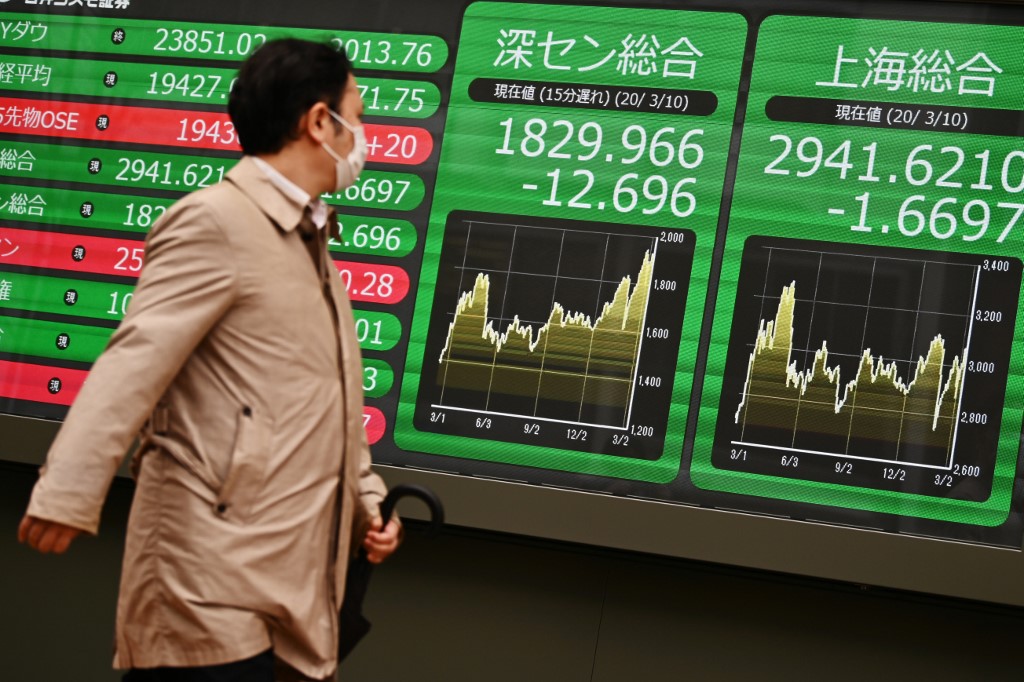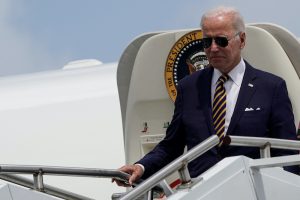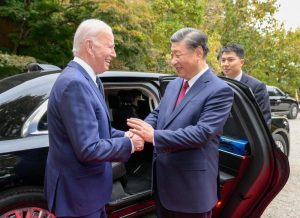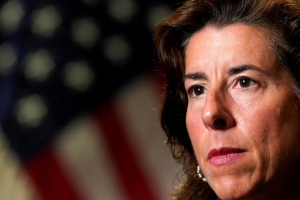Asia’s major markets were in the green on Thursday as investors breathed a sigh of relief after the United States looked set to avert a catastrophic debt default – for now.
Joe Biden and Xi Jinping’s decision to hold a virtual meeting also provided a much-needed boost to trading floors that have been starved of good news in recent weeks, as they battle a string of problems including surging inflation, an expected taper of monetary policy and a growing energy crisis.
With just days to go before the United States runs out of cash, top Senate Republican Mitch McConnell proposed a truce, meaning Democrats can vote to hike the debt ceiling allowing the government to pay its bills until December.
Also on AF: Ambani’s ‘New Oil’ Plan a $60bn Opportunity: Morgan Stanley
“We’re going to pay our debts, we have two months to figure out where we go from here,” Democratic Senate budget chairman Bernie Sanders said.
The offer removed an increasingly dark cloud from over the world’s markets and woke up Wall Street’s three main indexes, which closed on Wednesday in positive territory.
And Asia picked up the baton on Thursday with Hong Kong – which has been battered this year by China’s tech clampdown, security concerns and the China Evergrande crisis – up more than 3% as bargain-buyers moved in.
The Hang Seng Index rose 3.07%, or 735.24 points, to 24,701.73. Mainland Chinese markets were closed for a public holiday.
Tokyo also rose, having fallen for eight straight days, while Taipei jumped 2% and Seoul 1.8%. There were also healthy gains in Sydney, Singapore, Mumbai and Bangkok.
The benchmark Nikkei 225 index closed up 0.54%, or 149.34 points, at 27,678.21, the first gain after falling for eight straight sessions. But the broader Topix index gave up earlier gains and ended down 0.12%, or 2.29 points, at 1,939.62.
Frosty Relationship
The news that Biden and Xi would be holding direct talks by the year’s end – albeit online – added some more optimism, raising hopes of a thawing in what has been an increasingly frosty relationship between the superpowers.
There was more positive news with concerns over an energy crunch also easing slightly on Wednesday after the US Energy Secretary Jennifer Granholm suggested unlocking some of the country’s vast crude reserves to keep a lid on prices, which this week hit seven-year highs.
The cost of a barrel of oil has roared higher as the global economy reopens from Covid-19 lockdowns, while the approaching northern hemisphere winter has led to the price of natural gas doubling from last month, forcing suppliers to seek out crude as a cheaper alternative.
OPEC’s decision not to open the taps further has added to the problems. Still both main barrels sank on Thursday, extending the previous day’s drop.
Supply Bottlenecks
The run-up in the energy market has ramped up fears that inflation – already surging owing to the global recovery and supply bottlenecks – will continue to spike higher, forcing central banks to wind in their ultra-loose monetary policies earlier than envisaged to prevent prices running out of control.
All eyes are on the Federal Reserve, which has signalled it will begin tapering its bond-buying programme before the end of the year, bringing an end to the easy money that has helped drive the global equity and economic rebound.
Analysts remained cautious in light of recent hefty losses across world markets in recent weeks.
OANDA’s Jeffrey Halley said: “Given the headline driven nature of the equity moves we have seen this week, I would suggest caution. We are only one negative headline away from the herd stampeding back the way it came.”
MARKETS
Tokyo > Nikkei 225: UP 0.5% at 27,678.21 (close)
Hong Kong > Hang Seng Index: UP 3.1% at 24,701.73 (close)
Shanghai > Composite: Closed for a holiday
New York > Dow: UP 0.3% at 34,416.99 (close)
- AFP with additional editing by Sean O’Meara
























